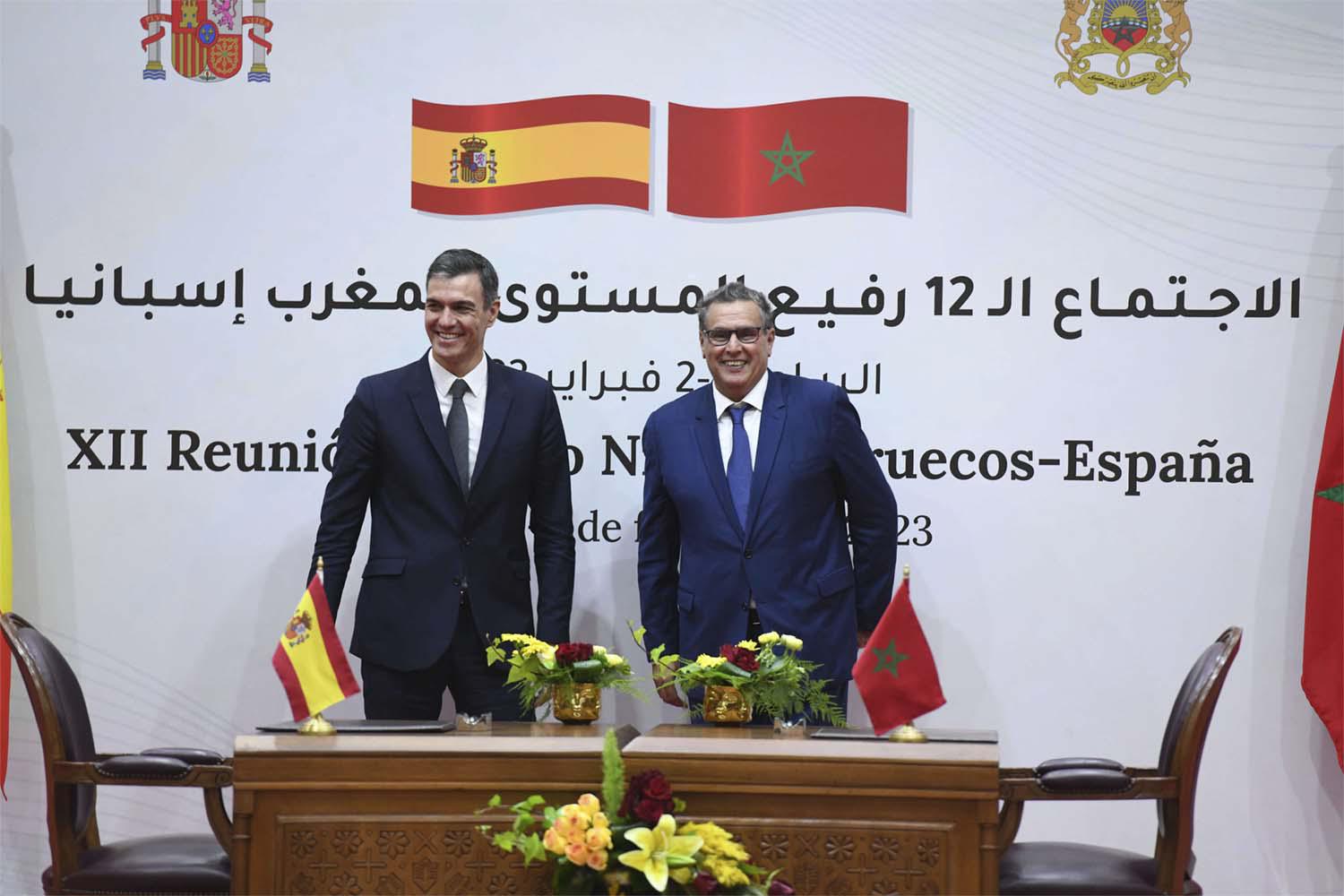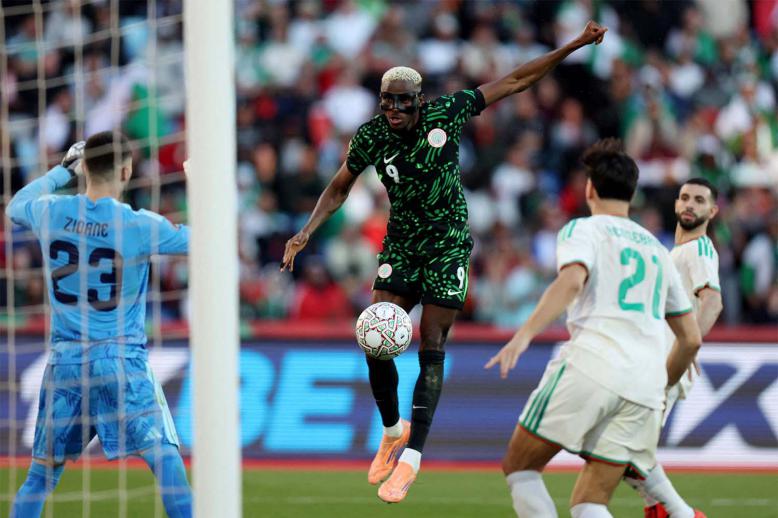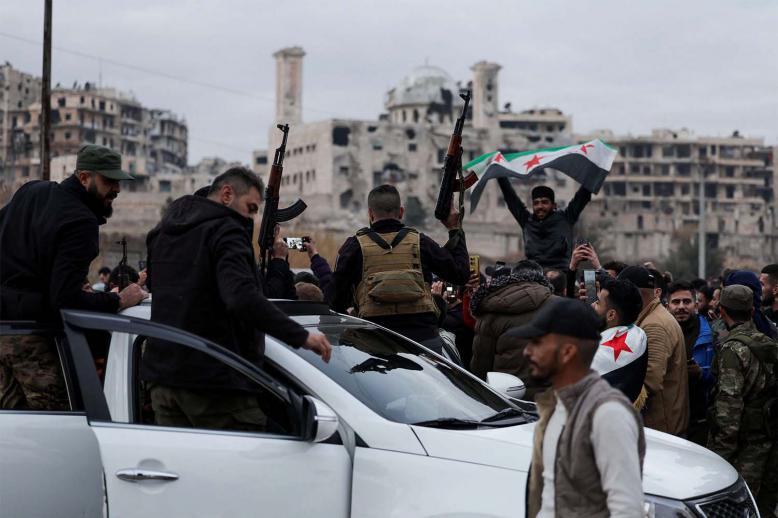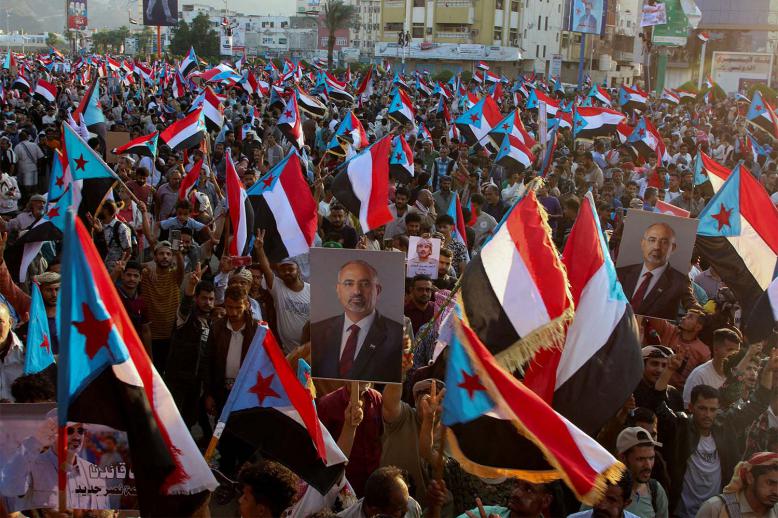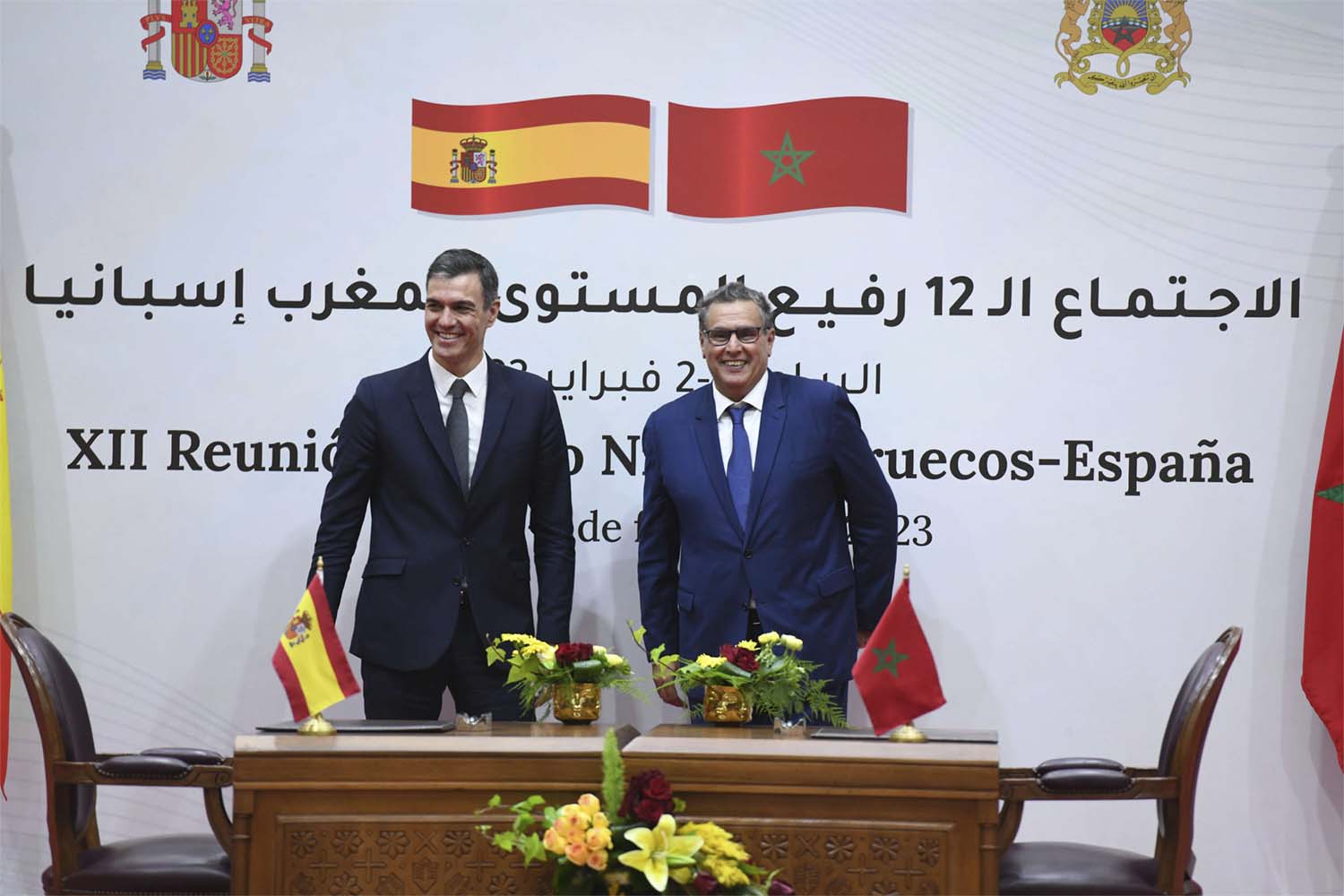Spanish, Moroccan officials hold wide-ranging meetings to improve ties
RABAT - The governments of Spain and Morocco held wide-ranging meetings Thursday aimed at turning the page on diplomatic tensions and striking deals on customs crossings and business development.
“The 12th Moroccan-Spanish High-Level Meeting (HLM) reinforces the adherence of the two Kingdoms to a renewed process of bilateral cooperation, which meets the strong aspiration of HM King Mohammed VI and HM King Felipe VI to anchor the bilateral strategic partnership,” said Moroccan Prime Minister Aziz Akhannouch.
“This meeting, which is an opportunity to celebrate the historical relations and the ties of Moroccan-Spanish friendship, also allows to translate the major orientations of the partnership into a clear roadmap to serve the interests of the two friendly peoples,” Akhannouch at the opening of this session of the HLM that he co-chairs with his Spanish counterpart Pedro Sanchez.
He recalled that the visit of Sanchez to Morocco, at the invitation of King Mohammed VI, is a turning point in the implementation of the new vision of relations between the two countries, praising the work done since the last session of the High-Level Meeting, held in Madrid in 2015 and the positive outcome marked by the implementation of the contents of the joint statement that sanctioned its work.
Akhannouch also reiterated the desire to raise bilateral cooperation and expand it to new dimensions, noting that this session is placed under the theme: "a privileged partnership, resolutely oriented towards the future", and this is in line with the willingness of both parties to devote a transparent and permanent dialogue, based on trust and mutual respect in the treatment of issues of common interest.
Spanish Prime Minister Pedro Sanchez arrived in Rabat on Wednesday along with 11 government ministers, and spoke alongside Moroccan counterpart Aziz Akhannouch at an economic forum. The two leaders met again Thursday while other ministers convened separately.
They are expected to sign agreements later Thursday that include the opening of customs offices at the border crossings for Spain's North African enclaves of Ceuta and Melilla, which Morocco doesn't officially recognize as Spanish territories. This should be a boost to the local economies on both sides of the border.
The frontiers are also a flashpoint for occasional migration tensions. The border policing methods of both Spain and Morocco fell under intense scrutiny after the death of at least 23 African men, many reportedly refugees from Sudan, when they stormed a border fence at Melilla last year.
Moroccans make up the single largest foreign community with 800,000 residents in Spain, and Spain is the largest foreign investor in Morocco, making economic cooperation a top priority for the Moroccan government.
Morocco, in similar fashion to Turkey and other countries in North Africa, has reaped economic benefits from the EU in exchange for curbing irregular immigration to Spain. That, however, hasn't stopped thousands of migrants and refugees, including young Moroccans looking for a better future in Europe, from attempting a dangerous crossing of the Mediterranean, or a perilous Atlantic journey to the Canary Islands.
King Mohammed VI and Sanchez spoke by telephone on Wednesday about a “new era" in relations, according to the Spanish prime minister's office. Sanchez was scheduled to pay a visit Thursday to the gravesite of the king's grandfather, Mohammed V.
Sanchez met with the king last year to put an end to a diplomatic crisis that had erupted in 2021 over the disputed territory of Western Sahara. During that meeting, Sanchez declared “a new phase of bilateral relations” with Morocco, an important partner with the European Union in fighting extremism and aiding the bloc’s migration policies.


